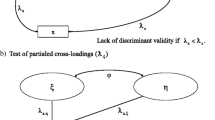Abstract
The biomedical theory that guides the work of public health departments does not explain the health impact of social problems like teenage pregnancies, unemployment or homelessness, but public health departments are increasingly concerned with such situations. One rationale is that social problems often have negative health consequences. Also, many public health professionals believe that stress-support theory, which is a widely accepted variant of the biomedical model, applies to these problems. But the fit is less than perfect and an alternative sociological model does better. A ‘structural ecology’ theory of health is outlined that explains how social problems cause ill health and how strong social structure improves population health. The alternative theory suggests the possibility of designing a new branch of public health, one that focuses on social problems rather than pathogens.
Similar content being viewed by others
Author information
Authors and Affiliations
Rights and permissions
About this article
Cite this article
Young, F. Social Problems: A Focus for a New Branch of Public Health?. Soc Theory Health 4, 264–274 (2006). https://doi.org/10.1057/palgrave.sth.8700074
Published:
Issue Date:
DOI: https://doi.org/10.1057/palgrave.sth.8700074




